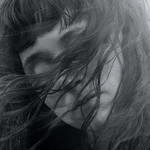
Out In The Storm
 $28.00
In stock with supplier
$28.00
In stock with supplierETA: 2-5 business days add to cart more by this artist
Waxahatchee
Out In The Storm
[ Merge / CD ]
Release Date: Friday 14 July 2017
We don’t have this item in our warehouse or stores at the moment, but the supplier has stock. We should be able to get it to you in 2 - 5 business days from when you order it.
Through her work as Waxahatchee, Katie Crutchfield has become a master of blending introversion and extroversion, communicating emotional subtleties with music that sounds best shouted in unison by adoring crowds. Out in the Storm, her fourth album, feels like the culmination of that inverse relationship. Detailing the trajectory of an increasingly destructive long-term relationship, Crutchfield writes with first-person directness and an occasionally jarring self-reflexivity. "Everyone will hear me complain," she sings near the beginning of the album, half-worry and half-demand. "Everyone will pity my pain." Co-produced by John Agnello, Out in the Storm is also the most polished Waxahatchee record to date, coupling some of Crutchfield's sharpest writing with her most powerful and distinctive work as a bandleader.
The last Waxahatchee album, 2015's sweeping Ivy Tripp, was a meditation on in-between states. More than one song began with an elongation of the word "maybe," as if to suggest that any of these thoughts could be retracted. Out in the Storm feels like a reckoning with those out-of-body experiences. In "8 Ball," a twangy rocker that's among the finest Crutchfield has ever written, she winds through a series of metaphors to assess the roles in a relationship. In its opening verse, she drawls out a sentence-"You let me take my own damn car to Brooklyn, New York, U.S.A."-with the kind of drawn-out hyper-specificity you employ for maximum impact in a fight. These are the stakes of Out in the Storm, an album whose peaks feel like climatic exchanges between people with a natural ability to hurt one another.
Out in the Storm is propelled by singular obsessions, a challenge that forces Crutchfield to find new ways of approaching the same situation. Often, she's actively trying to escape herself. She recalls falling in love "through childish eyes" in the slow, haunting "Fade," studying her own deterioration as she withers away in a dead-end relationship. In the shimmering "Sparks Fly," she flees to Berlin and sees herself through her sister's eyes: full of hope and charisma, "a live wire, electrified." Halfway through the record, this seems like a happy ending, but its brief moment of escape-staying up all night, drinking, dreading your return home-reminds you that sparks flying can often lead to greater destruction.
Crutchfield's road-tested band, who've settled into a lean, aerodynamic sound, complement the emotional extremes in her writing. In "Sparks Fly," a pattering drumbeat recalls the negative space in Neil Young's "Peace of Mind," giving the song a weightless momentum. Elsewhere, the hazy atmosphere of Ivy Tripp is transported to the more earthbound material, with stately keyboards from her twin sister Allison Crutchfield in "Recite Remorse" and Katie Harkin's smokey guitar riffs throughout "A Little More." The band is equally adept at mirroring Crutchfield's urgency, as in "Never Been Wrong," a charging anthem with lyrics pinpointed on one character trait. "The margin's gigantic, am I happy or manic," Crutchfield asks desperately, before raging against the loneliness of knowing a person better than anyone else: "I will unravel when no one sees what I see."
Crutchfield has a knack for addressing the way minor frustrations can snowball into deeper troubles over the course of a relationship, seamlessly zooming in and out to assess the damage. She explores how it can fuck up your sense of self, your sense of trust, even your sense of time. "You went back in time today, expecting me to do the same," she sings in the vicious "No Question," which culminates with a stark realization that she repeats like a mantra: "It never ends." "Silver" glides with a breezy modern rock sheen, but its lyrics are haunted by visions of destruction. In hushed, layered harmonies, Crutchfield sings about transformation with a poetic dream logic, expressed through imagistic verse that takes inspiration from Robert Pollard's songwriting in Guided by Voices.
Robert Pollard feels like a fitting analog to Crutchfield at this point in her career. Both artists seem to have a limitless well of side projects (and band names); both write at an unrelenting pace; and both successfully ditched their "lo-fi" signifiers through records that cleaned up their sound without sacrificing their characteristic sprawl. While lacking the close mic'd intimacy of her early work, Out in the Storm is equally immersive, with songs that play like fiery exorcisms. It proves that Crutchfield's music can retain its honesty while aiming at larger audiences, gaining its power from the raw, relentless energy that's always fueled her best songs. Without seeking easy answers, she's able to find peace in the explosion.
8.2 / 10 Pitchfork
Tracks:
Never Been Wrong 3:12
8 Ball 2:49
Silver 3:24
Recite Remorse 4:38
Sparks Fly 3:06
Brass Beam 2:42
Hear You 3:01
A Little More 2:32
No Question 3:38
Fade 3:48